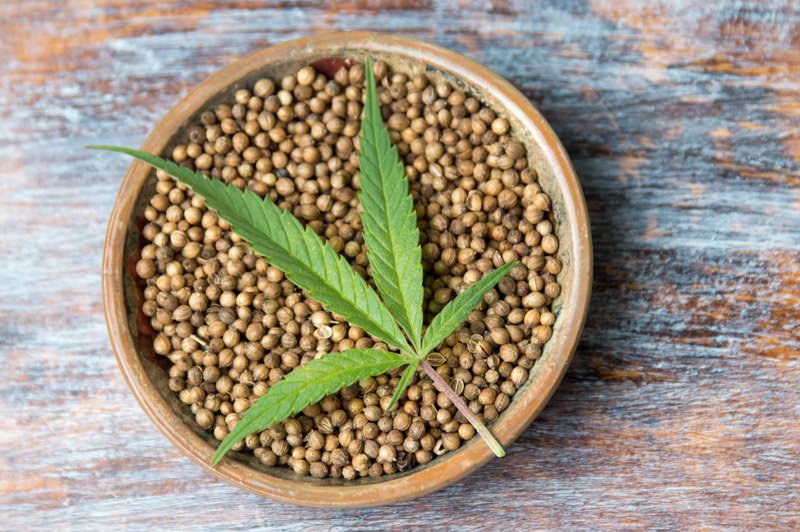USDA Works to Protect the Art of Farming
The importance of farming is tied to the very history of humanity. An industry worth nearly a trillion dollars or 5% of the U.S. economy alone. it’s not only about the food that we eat. The success of farming touches multiple industries on a global scale, perhaps our parents were wrong. Maybe money really does grow on trees.
Agriculture is the science and art of cultivating plants and livestock. This art is what enables people to live in cities and spend the majority of their time not dedicated to making sure they have food to eat and survive. While urban farming is becoming a trend, most people are not growing the food that they eat regularly. That job belongs to farmers and it’s a huge responsibility.
The Importance of Protecting Your Hemp Crop
It’s so important that the United States government subsidizes the hemp industry and offers a ton of resources to agricultural producers to protect their investment. One of those protections is crop insurance policies. Normal agriculture insurance can be subsidized by the government, meaning you pay some and the government pays some. It can protect your business if:
- You lose your crops as a result of a natural disaster
- You can show proof of a loss of revenue due to prices of your agriculture commodity. For example, if you’re growing hemp, that is your commodity
This past year we started to see hemp specific insurance programs become available through pilot programs.
“Agriculture is an inherently risky business.” – Andrew Kowalski, Risk Management Specialist
Why is Hemp Specific Insurance Important?
Hemp as a crop is becoming increasingly popular. Farmers that have been harvesting land for generations find it appealing, and it’s attractive to the new “modern farmer” or everyday entrepreneur who sees that the opportunity of the industry. Blue Forest Farms history of leadership adds up to over 30 years of experience in farming, cannabis, and business. One of the new challenges we heard a lot from our farmer community last year was that so many new farmers had started growing hemp, and so when harvest time came around the market was flooded.
Blue Forest Farms does offer certain protections to farmers that buy seeds from us through our buyback program, but not everyone does this, so for some farmers, not necessarily our partners, this resulted in a loss of revenue.
Hemp is naturally an easy crop to grow, harvest and sell. It has innate properties that make it resistance to typical plant threats. The technology to harvest it is readily available, and the increase in demand for products made of hemp make it a simple sell. Knowing all of this it’s easy to understand why so many people are turning to it as a business. To understand more about how the future of farming will be affected by these new insurance protections we sat down with Andrew Kowalski who has intimate knowledge on hemp insurance due to his role in serving American agricultural producers. “Over 600 MPCI policies have been sold during crop year 2020, the first year of the pilot program.” Said Kowalski. Read the full interview with him below.
Interview with Andrew Kowalski of Risk Management Agency

Andrew is a Risk Management Specialist with the Risk Management Agency (RMA) based in Kansas City, Missouri. RMA serves America’s agricultural producers through the administration of effective, market-based risk management tools to strengthen the economic stability of agricultural producers and rural communities. As a Risk Management Specialist, Andrew participates in the research, development, and revision of federal crop insurance policies, underwriting methods and loss adjustment procedures.
What is the most common question you get from farmers looking to grow hemp?
The question we get most is: What insurance options are available for hemp producers? We usually let them know that coverage is available through Multi-Peril Crop Insurance (MPCI) to producers in certain counties for crop year 2020. The pilot insurance program provides Actual Production History coverage for eligible producers in certain counties in Alabama, California, Colorado, Illinois, Indiana, Kansas, Kentucky, Maine, Michigan, Minnesota, Montana, New Mexico, New York, North Carolina, North Dakota, Oklahoma, Oregon, Pennsylvania, Tennessee, Virginia, and Wisconsin.
MPCI protects against crop yield losses by allowing participating producers to insure a certain percentage of historical crop production. This pilot program is in addition to Whole Farm Revenue Protection (WFRP) coverage already available for hemp producers. WFRP provides a safety net for all commodities on the farm under one insurance policy and is available in all counties nationwide.
That’s fantastic! Great to see that these protections are becoming available and being taken advantage of by the hemp community. How did the RMA hemp pilot program get started?
The MPCI hemp pilot program was developed under Section 508(h) of the Federal Crop Insurance Act. The 508(h) process allows private parties to develop insurance products that are in the best interests of producers, follow sound insurance principles, and are actuarially appropriate. Private sector individuals (or groups) who have specific ideas as to what type of risk management insurance products are needed for their crops or livestock can develop insurance products to be considered for approval by the Federal Crop Insurance Corporation (FCIC) Board of Directors (Board). For the MPCI hemp pilot program, upon approval by the Board, RMA worked with the private submitters on a tight timeline to be able to implement it quickly for crop year 2020.
Sounds like time was a challenge, but the program is available is multiple states so I’m optimistic about its future. What are the reasons why farmers should apply for the multi-peril crop insurance program?
Agriculture is an inherently risky business. Farmers and ranchers need to regularly manage for adverse weather and production risk. Federal crop insurance is the pre-eminent risk management solution for farmers and ranchers, providing effective coverage that helps them recover after severe weather and bad years of production. For some farming and ranching operations, crop insurance is the difference between staying in business or going out of business after a disaster.
Hemp Crop Insurance Options
It’s great to see that there are people at work to make sure this growing industry is supported.
To learn about crop insurance options, producers should contact a local insurance agent near them. Visit RMA’s Agent Locator to find an agent near you. Producers can also visit the hemp webpage on farmers.gov to get the latest information on what USDA is doing to assist hemp growers.
Start Growing Hemp with Us
To get started growing hemp as a partner of Blue Forest Farms, check out our Seeds page and fill out the inquiry form here.
Blue Forest Farms partners get the added protection of genetically stable seeds, seedlings, and clones, and may be eligible for our hemp buyback program.




